Main Sentence Fragment Takeaways:
- When a group of words doesn’t form a complete thought, that’s a sentence fragment.
- Fragments are often missing a subject or verb.
- Even though some fragments have punctuation, they are still incomplete sentences.
- Since dependent clauses can’t stand on their own, they are a type of sentence fragment.
- Since independent clauses are complete sentences, they are not fragments.
- Watch out for participle phrases and appositives when you create sentences.
- Easily fix a fragment by revising your words to include a missing subject or verb. Or, you can attach the fragment to an existing complete sentence.
You can’t tell half a story without annoying someone. In the same way, nor can you write half a sentence. First, we’ll look at the sentence fragment definition and the types of fragments. Then, we’ll show you how to spot them with sentence fragment examples as well as the easiest ways to fix fragments fast.
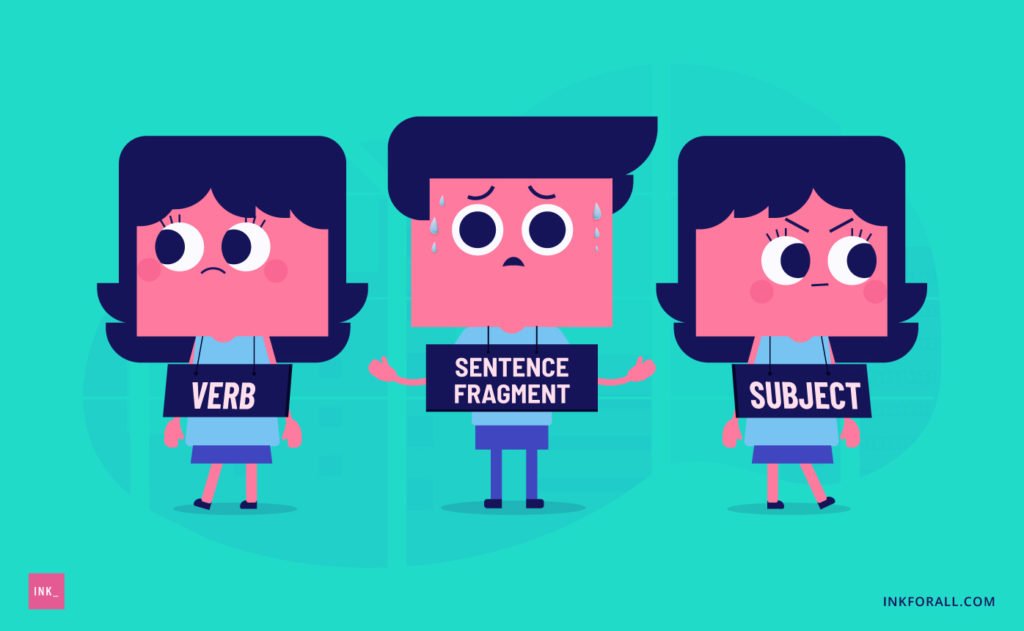

What is a Sentence Fragment?
A sentence fragment is a group of words that look like a sentence but is not. It is missing an element like a subject or a verb, making it incomplete. A sentence fragment may be punctuated to look like a complete sentence, but it doesn’t express a complete thought and can’t stand on its own. Consider the sample clauses and sentences below:
There are two types of sentence fragments: a missing-subject fragment and a missing-verb fragment. A missing-subject fragment is a group of words without a main subject. For example, “ran for president” instead of “Carl ran for president”. Similarly, a missing-verb fragment is a group of words that lacks averb. For instance, “Georgia on the shore” instead of “Georgia is on the shore”. Here are more examples:
- Missing-subject fragment: a group of words without a subject
- Missing-verb fragment: a group of words without a verb
What is a Fragment Missing?
A fragment is missing a subject or a verb. As a result, fragments fail to form a complete thought. For example, a missing-subject fragment is a group of words without a main subject (“ran for president” instead of “Carl ran for president“). Similarly, a missing-verb fragment is a group of words that lacks a verb (“Georgia on the shore” instead of “Georgia is on the shore“).
- Missing-subject fragment: a group of words without a subject
- Missing-verb fragment: a group of words without a verb
What is an Example of a Sentence Fragment?
An example of a sentence fragment is “took Chris’ bike” because it doesn’t form a complete thought. When you say this, your audience is left wondering what you truly mean. What’s more, it’s missing a verb (fragments are often missing a subject or a verb). Here’s another example:
Sentence fragment:Than her sister ate
Whose sister are we referencing? Why was the word ‘than’ included?
Let’s revise this fragment and make it correct:
How Do You Fix a Sentence Fragment?
There are three main ways to fix a fragment by turning it into a complete sentence. First, try adding the missing subject or verb (Someone tookChris’ bike.). Next, try combining it with or attaching it to a complete sentence (We still aren’t sure who took Chris’ bike).
- Add the missing subject or verb
- Combine it with a complete sentence
- Attach it to a complete sentence
Sentence fragments occur commonly in blog posts and casual conversations. Unfortunately, they aren’t grammatically correct and can confuse others. Make sure your audience knows exactly what you mean by avoiding fragmented sentences.
Here are additional examples of sentence fragments and how to fix them:
What are the Four Types of Fragments?
There are actually more than four types of fragments. Types of sentence fragments include dependent or subordinate clause, participle phrase, infinitive, afterthought, lonely verb (missing-verb fragment), and appositive. All of these are types of fragments because they fail to express a complete thought despite containing punctuation, a subject, and a verb.
- Lonely verb (missing-subject fragment)
- Infinitive
- Participle phrase
- Dependent/subordinate clause
- Appositive
- Afterthought
Lonely Verb Fragmented Sentences
Lonely verb fragments have this name because they are a phrase without a subject. In other words, the subject is missing and as a result, the verb is alone. Since complete sentences express a complete thought as well as have a subject and a verb, missing-subject fragments can’t be complete sentences.
How to fix it:
Participle Fragments
Usually, you can easily spot a participle phrase because they tend to begin with a word that ends in –ing (gerund) or –ed (participle). We consider these fragments because they don’t express a complete thought, either.
How to fix it:
Dependent/Subordinate Clauses
Subordinate clauses are also called dependent clauses because they can’t stand on their own without an independent clause to give them meaning. Even though they contain a subject, a verb, and a subordinating conjunction, they are not considered complete sentences because they don’t express complete thoughts.
How to fix it:
Appositive Fragments
These types of fragmented sentences rename the noun, or describe it using different words and characteristics. Because their main function is to help provide additional detail and clarity, they can’t stand on their own as a main or complete thought.
How to fix it:
Infinitive Fragments
This type of phrase begins with the infinitive form of a verb. Since all infinitives in English take the form to + infinitive verb (to think), infinitive phrases and fragments begin with the word to.
How to fix it:
Afterthought Fragments
This type of incomplete sentence usually begins with a transition word like one of the following: for instance, for example, except, such as, like. They are not complete thoughts because they tend to add more detail to something the author said previously, or add something that the speaker forgot to include.
How to fix it:
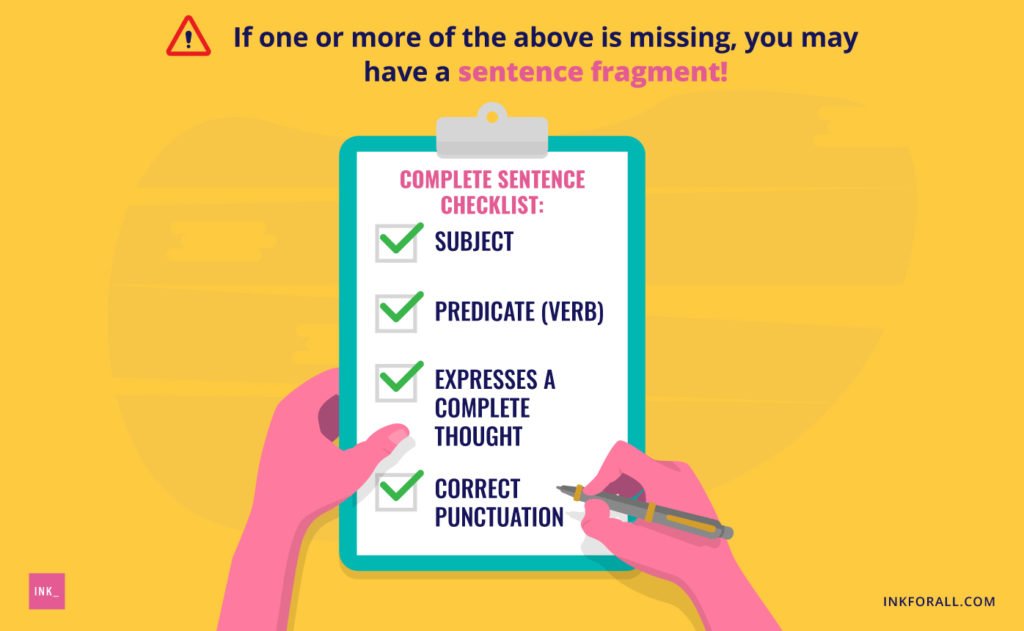

Is a Sentence Fragment a Dependent Clause?
Many fragmented sentences are dependent clauses. A dependent clause is a clause that cannot function without an independent clause. An independent clause can stand alone.
The examples above are incomplete sentences because they need independent clauses. That’s why they are dependent clauses and sentence fragments.
How Do You Know if a Sentence is a Fragment?
You know a sentence is a fragment when it doesn’t express a complete thought. Often, phrases are fragments because they don’t contain a subject or a verb. However, even if the fragmented sentence contains a subject and a verb, it can’t be a complete sentence if it doesn’t express a complete thought (the fragment “Kids cleaning downstairs” instead of the complete sentence “I think the kids are cleaning the floors downstairs“).
- The verb is missing
- The subject is missing
- The sentence begins with a participle phrase
- There’s a dependent clause
- There’s an appositive
1. Check Your Verb
Does your sentence have a verb? If yes, is the verb the correct tense?
A sentence fragment often contains no verb. When a fragment does have a verb, the verb is often used incorrectly.
2. Identify Your Subject
Who or what is the subject of your sentence? Can your audience easily identify this subject, or is it implied?
A correctly formatted sentence needs a clear subject. Your readers should know what you’re referencing without searching for contextual clues.
3. Look for Participle Phrases
A sentence should not begin with a participle phrase. A participle phrase is a verb that ends in -ed or -ing.
4. Watch out for Dependent Clauses
A dependent or subordinate clause cannot stand on its own. A sentence that begins with a subordinator, such as while or because, might be a fragment. You should also watch for sentences that begin with relative pronouns, such as when or that.
5. Avoid Appositives
Appositives are noun phrases that follow a previous sentence. An appositive describes a noun or pronoun that was mentioned in an earlier conversation or paragraph.
Is Stop a Fragment?
Stop is not a sentence fragment. This might be confusing since sentence fragments are usually incomplete thoughts that are missing a subject or a verb; the command “stop” might seem like a verb without a subject. However, the subject is actually implied or understood, meaning it’s contained in the way we form the verb. Therefore, “stop” is not a fragment because it expresses a complete thought and an implied subject as well as contains a verb.
For example, imagine you are sitting on a train and there is a small boy in the seat behind you. The child keeps kicking your chair and disturbing you.
Then, you turn around and say, “Please stop.” It’s understood that you’re referring to the boy (subject) and requesting that he cease kicking (complete thought).
Is a Question a Fragment?
A question can be a fragment, but this isn’t always the case. A sentence fragment is a group of words that fails to express a complete thought. Often, this is because the phrase doesn’t contain a subject or verb. A fragment might look like a sentence because it contains punctuation like a question mark (?) or exclamation point (!). Even still, if it doesn’t express a complete thought, it’s a fragment (the fragment “By the door?” versus the complete sentence “Should I leave these by the door?“).
What is an Intentional Fragment?
An intentional fragment is a phrase the author deliberately chose not to completenotwithstanding the grammatical error. In other words, the author intended to write an incomplete sentence. Like all fragments, an intentional fragment is a group of words that doesn’t express a complete thought. Intentional fragments are a conscious (or intentional) stylistic choice rather than an accidental grammatical error.
You may see intentional fragments in creative writing like plays, novels, and poems. Or, in casual everyday conversations and informal writing like texts (or like this sentence and the last one 😉).
What Causes a Sentence Fragment?
A sentence fragment occurs when your thought is not complete. Your sentence may lack a verb, subject, or both. Many writers and readers think of verbs as action words. However, verbs can also join together other parts of a sentence. These verbs are called helping verbs.
If your sentence requires a helping verb, you must add one. Otherwise, your sentence is not a complete thought.
How Well do you Know Sentence Fragments? Take our Quiz Below!
Sentence Fragment Question #1
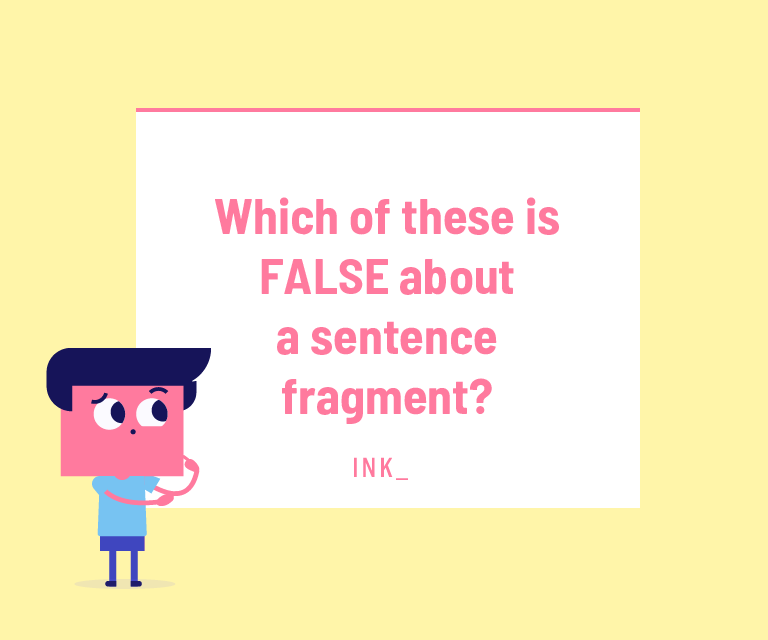

The answer is B. Independent clauses can exist on their own, but sentence fragments can’t.
Sentence Fragments Question #2
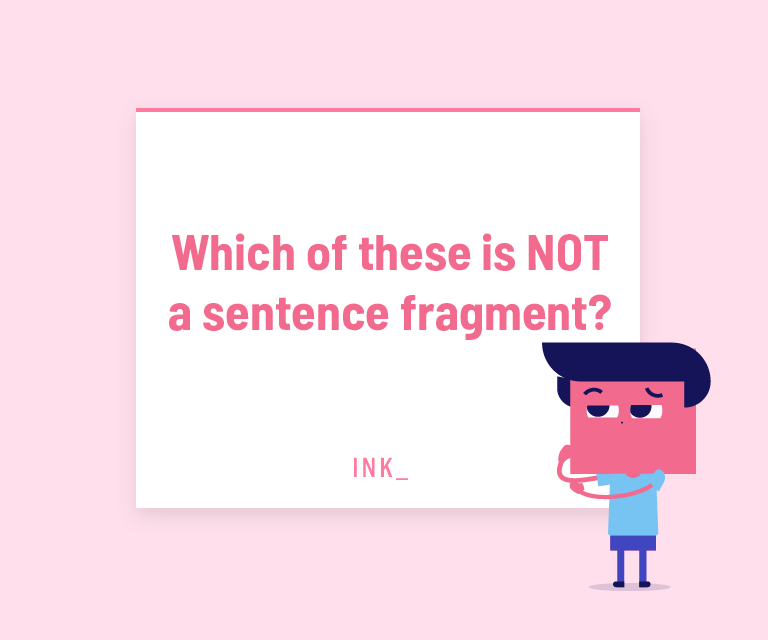

The answer is C. This sentence expresses a complete thought.
Fragmented Sentence Question #3
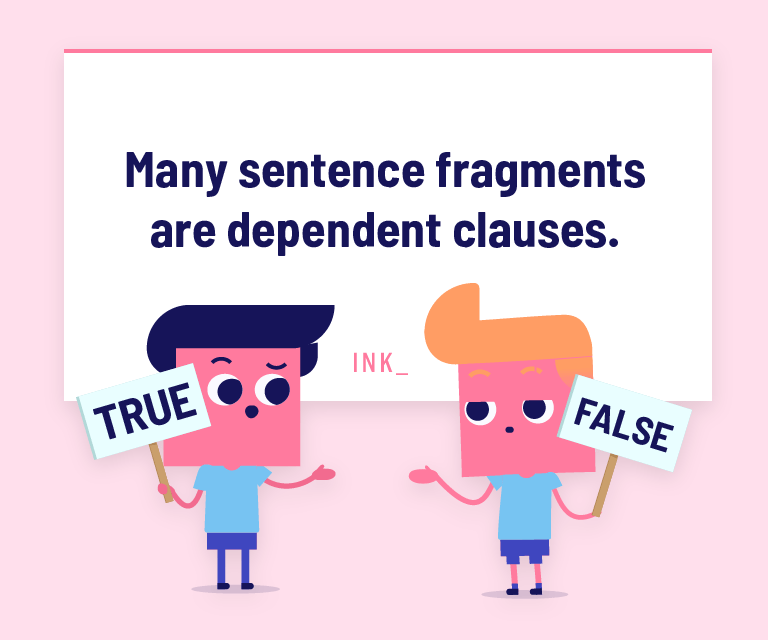

The answer is TRUE. A dependent clause is a clause that cannot function without an independent clause.
Sentence Fragments Question #4
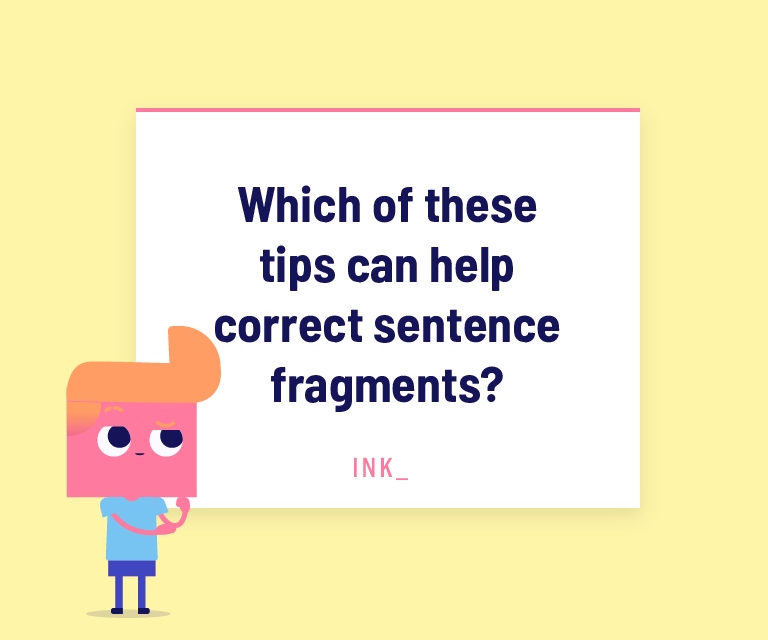

The answer is D. You could also look out for participle phrases and dependent clauses.
Sentence Fragment Question #5
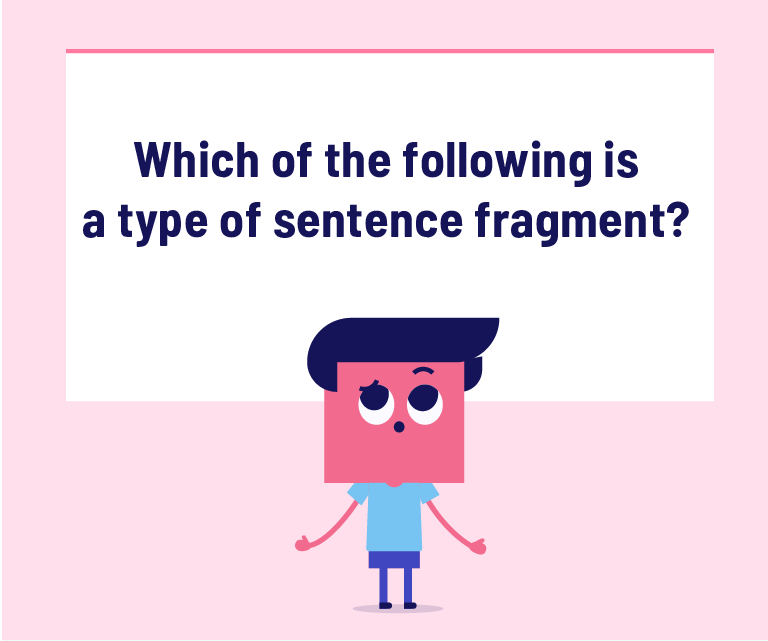

The answer is D. Other types of sentence fragments include dependent or subordinate clauses, lonely verbs (missing-verb fragments), and appositives.
Fragmented Sentence Question #6
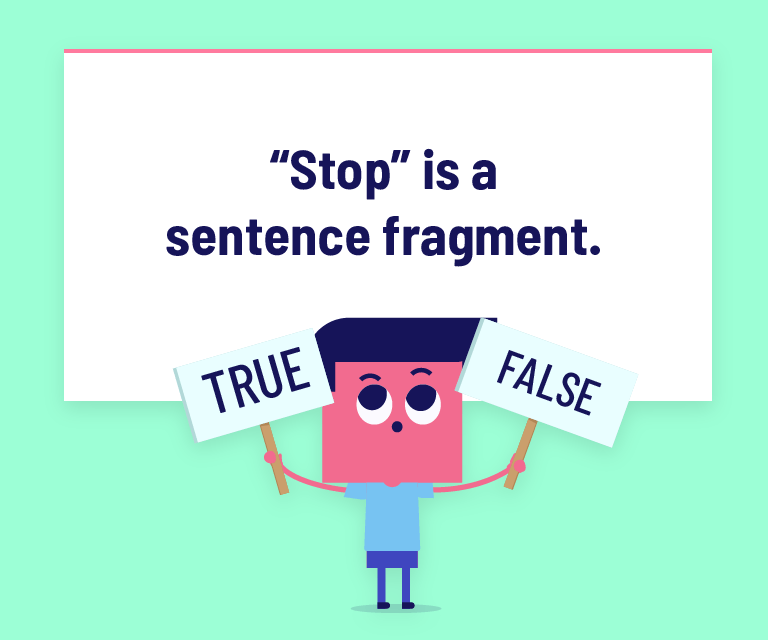

The answer is FALSE. “Stop” is not a fragment because it expresses a complete thought. It also has an implied subject and contains a verb.




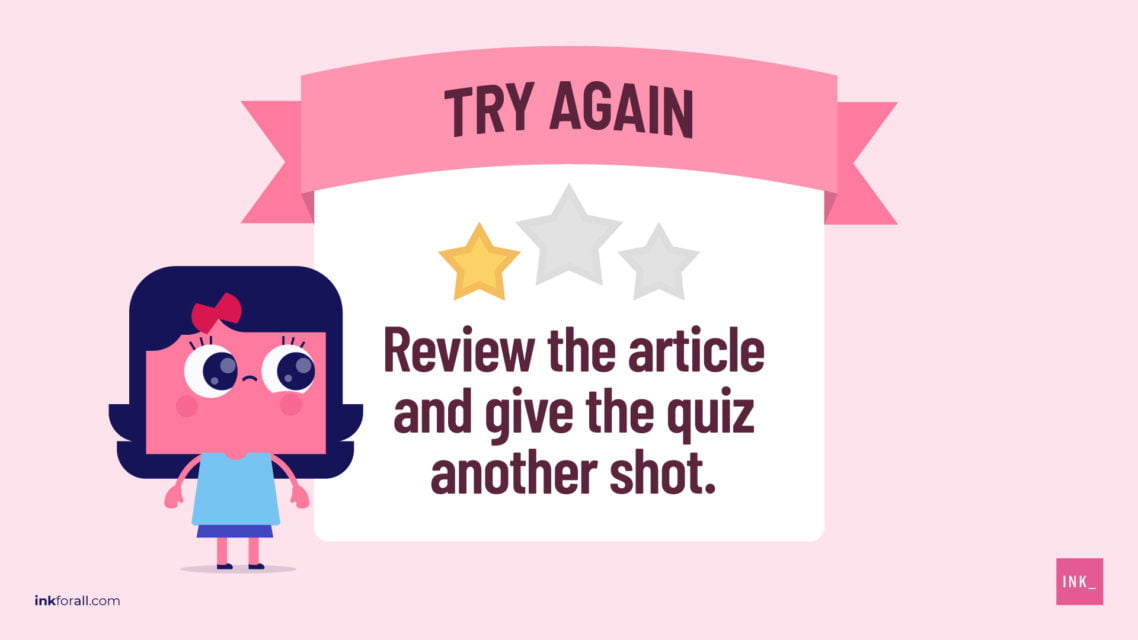


so helpful! Btw, i REALLY love your passages!
Hi Kinsley,
We appreciate your positive response to our post. We hope that this article has answered some of your questions about sentence fragments. We also recommend that you read our article about run-on sentences here https://blog.inkforall.com/run-on-sentence. Again, don’t forget to try our quizzes. Thanks again for stopping by! 🙂
Rechelle